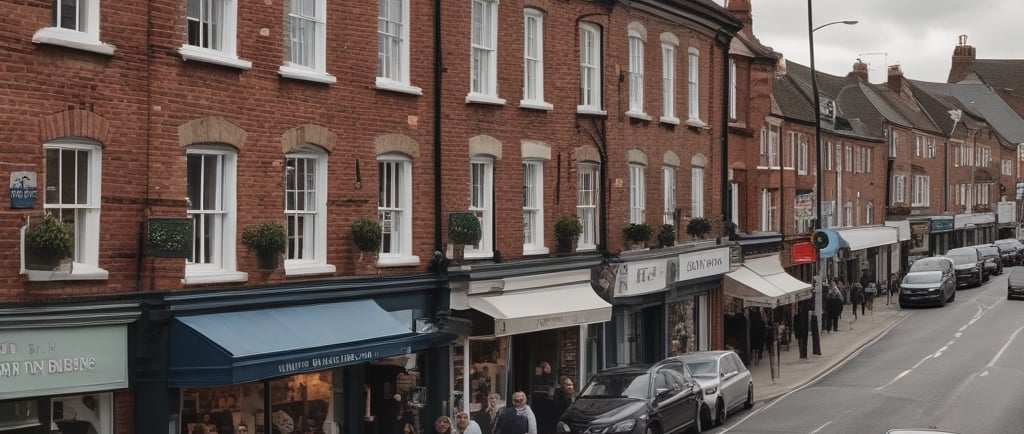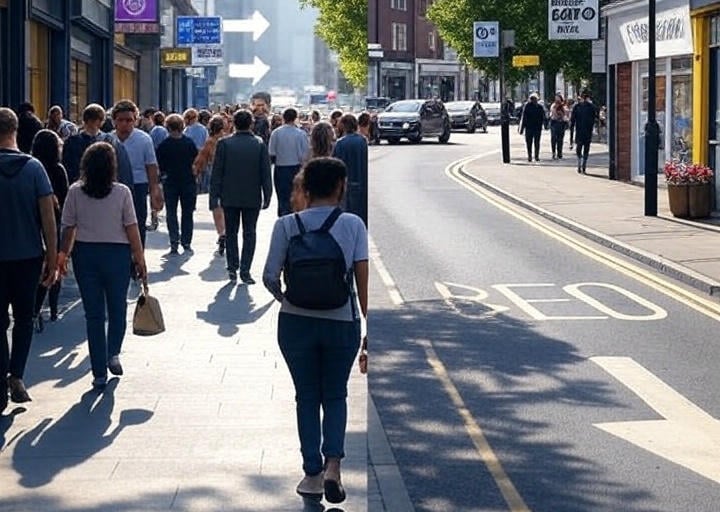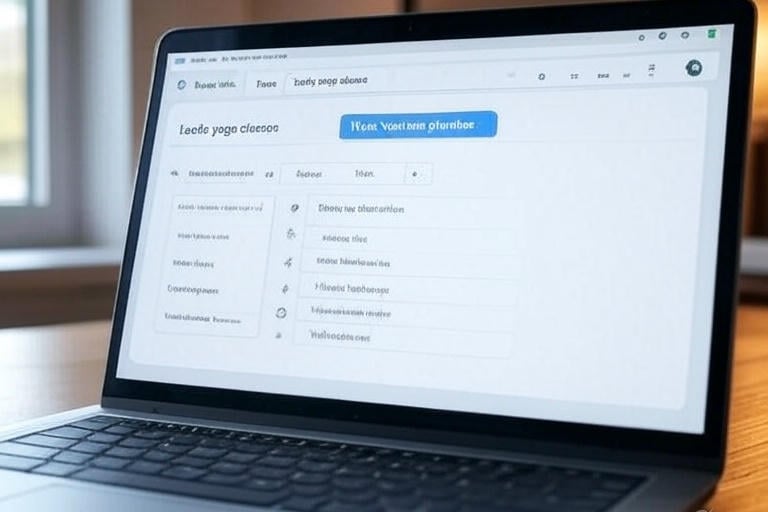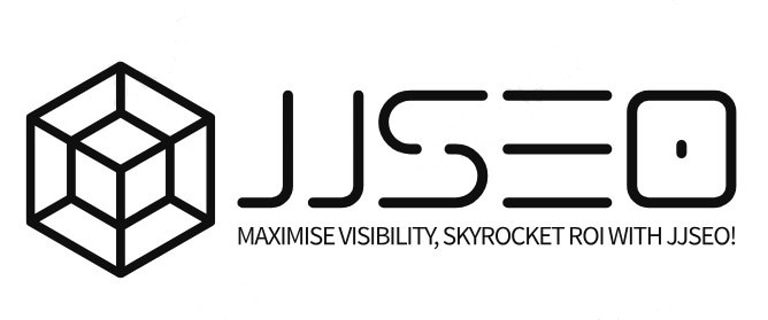Local SEO vs Enterprise Keywords: Why Leeds SMEs Need Long Tail precision
Discover why Leeds and UK SMEs need long-tail keywords for local SEO success. Learn how enterprise keyword strategies differ and boost conversions with JJSEO.
SMES
Jorge Jaroslavsky
5/19/20256 min read


Why Keyword Strategies Differ for Large Enterprises vs. Local SEO in Leeds
As a Leeds-based SEO consultant with over two decades of experience, I’ve seen firsthand how keyword strategies can make or break a business’s online success. Whether you’re running a small café in Headingley or a tech startup in Holbeck, the way you approach keywords in SEO is fundamentally different from how large enterprises do it. For small and medium enterprises (SMEs) in West Yorkshire, high visibility and website traffic are only half the story. If those visitors aren’t the right customers—people in the right location, with the right needs and purchasing power—your call-to-action (CTA) buttons might as well be gathering digital dust. In this post, I’ll explain why local SEO prioritises reaching the right customer, why long-tail keywords are your secret weapon, and how keyword research and visibility strategies differ between local businesses and corporate giants. To dive deeper into tailored strategies, check out my SME SEO services designed specifically for businesses like yours in Leeds.
The Big Enterprise Approach: Casting a Wide Net
Large enterprises, think national retailers or global tech firms, have the budgets and resources to chase broad, high-volume keywords. These are short, generic terms like “insurance,” “software,” or “clothing.” Their goal is maximum visibility across diverse audiences, often spanning multiple regions or even countries. They’re playing a numbers game: get as many eyes on their website as possible, banking on the fact that a small percentage of that traffic will convert.
For these companies, keyword research is a high-stakes operation. They use premium tools like SEMrush, Ahrefs, or Moz to identify high-traffic, high-competition keywords with thousands of monthly searches. Their SEO teams optimise sprawling websites with hundreds of pages, backed by aggressive link-building campaigns and hefty content marketing budgets. Visibility is king, and they measure success in impressions, organic traffic, and domain authority.
But here’s the catch: high traffic doesn’t always mean high conversions. A national insurance provider might rank #1 for “car insurance,” driving thousands of visitors to their site. But if those visitors are spread across the UK, include teenagers who can’t yet drive, or people just browsing for quotes, the actual clicks on their “Get a Quote” CTA could be disappointingly low. For SMEs in Leeds or West Yorkshire, this scattergun approach is not only impractical—it’s a waste of time and money.
Local SEO: Hitting the Bullseye with the Right Customer
For local businesses in West Yorkshire—whether you’re a dentist in Horsforth, a bakery in Chapel Allerton, or a plumber in Pudsey—SEO isn’t about attracting the masses. It’s about attracting the right people: those within a drivable distance, with the budget, intent, and demographics to engage with your business. A flood of website visitors from London or Glasgow won’t help if your shop is on Kirkstall Road. Similarly, traffic from people outside your target age group or income bracket is unlikely to translate into sales.
This is where local SEO shines. Instead of chasing generic keywords, local SEO focuses on geo-specific and intent-driven terms. For example, a Leeds-based florist might target “wedding flowers Leeds” or “same-day flower delivery West Yorkshire” rather than just “flowers.” These long-tail keywords—phrases with three or more words—have lower search volumes but higher conversion potential. Why? Because they reflect specific user intent. Someone searching “best coffee shop in Leeds city centre” is likely standing in Leeds, craving a flat white, and ready to walk through your door.
The beauty of local SEO is its precision. By optimising your Google Business Profile, creating location-specific landing pages, and targeting long-tail keywords, you ensure your website reaches people who are ready to act. This targeted approach maximises your CTA clicks—whether that’s “Book Now,” “Call Us,” or “Visit Our Store”—because you’re speaking directly to your ideal customer. Want to learn more about how I’ve helped businesses like yours? Visit my About me page to see my journey and expertise in West Yorkshire SEO.
Why Long-Tail Keywords Are Gold for SMEs
Long-tail keywords are the backbone of effective local SEO, especially for SMEs. Unlike the broad terms big enterprises target, long-tail keywords are specific, niche, and less competitive. They allow small businesses to rank higher in search results without the need for massive budgets or years of domain authority. For example, ranking for “solicitor” is a pipe dream for a small Leeds law firm, but “family law solicitor Leeds” or “divorce lawyer West Yorkshire” is achievable and far more effective.
These keywords also align with how people search locally. Thanks to voice search and mobile devices, users are typing (or speaking) longer, conversational queries like “where can I find a vegan café in Leeds?” or “emergency plumber near Horsforth.” By incorporating these phrases into your website content, blog posts, and meta tags, you capture traffic from users who are closer to making a decision. This is critical for SMEs, where every click needs to count.
Moreover, long-tail keywords help you avoid irrelevant traffic. A generic term like “café” might bring in visitors from across the UK, but “independent café in Leeds city centre” attracts locals who can actually visit. This focus on relevance boosts engagement metrics like time on page and reduces bounce rates, which Google rewards with higher rankings. For more insights on optimising your site, explore other articles on my blog.
Keyword Research: Enterprises vs. Local SMEs
Keyword research for large enterprises and local SMEs couldn’t be more different. Big companies start with broad market analysis, often targeting keywords with tens of thousands of monthly searches. They use expensive tools to track competitors, analyse search trends, and identify opportunities across multiple regions. Their content is designed to dominate national or global SERPs (search engine results pages), often at the expense of specificity.
For SMEs in Leeds, keyword research is more grounded and practical. You don’t need a £500/month SEMrush subscription to get started—free tools like Google Keyword Planner and Google Search Console can reveal valuable insights. Start by brainstorming the services you offer and the locations you serve. For instance, a West Yorkshire yoga studio might list terms like “yoga classes Leeds,” “beginner yoga West Yorkshire,” or “yoga studio near Roundhay Park.” Next, use tools to check search volume and competition, prioritising long-tail keywords with moderate traffic and low difficulty.
Another key difference is intent. Enterprises often target informational keywords (e.g., “what is insurance”) to build brand awareness, while local SMEs focus on transactional keywords (e.g., “buy wedding flowers Leeds”) to drive immediate action. This intent-driven approach ensures your SEO efforts translate into real-world results, like phone calls, bookings, or foot traffic.
Visibility: Quality Over Quantity
For enterprises, visibility is about dominating SERPs for high-volume keywords, even if it means competing with dozens of rivals. They measure success in raw traffic numbers and top rankings, often using paid ads to supplement their organic efforts. But for local SMEs, visibility is about being found by the right people at the right time. Appearing in the Google Local Pack (the map-based results) or ranking for “near me” searches is far more valuable than racking up thousands of irrelevant visits.
Local SEO prioritises quality over quantity. Optimising your Google Business Profile with accurate details, encouraging customer reviews, and creating location-specific content (like blog posts about “Top 5 Wedding Venues in Leeds”) boosts your chances of appearing in local searches. These strategies build trust and relevance, ensuring your website attracts visitors who are likely to convert.
Bringing It Home: Why Local SEO Wins for SMEs
If you’re an SME in Leeds or West Yorkshire, your SEO strategy should focus on precision, not scale. High traffic is meaningless if it’s not driving clicks on your CTAs or bringing customers through your door. By targeting long-tail keywords and optimising for local intent, you can connect with the right audience—people in your area, with the right needs and budget. This approach is cost-effective, sustainable, and delivers measurable results, whether you’re a café, a solicitor, or a tradesperson.
At JJSEO, I’ve helped countless West Yorkshire businesses transform their online presence with tailored local SEO strategies. Whether you’re in Leeds city centre or the suburbs of Wakefield, I can help you identify the right keywords, optimise your website, and attract the customers who matter most. Ready to take your SEO to the next level? Contact me today for a free consultation or SEO audit, and let’s make your business the go-to choice in your community.






Expertise
Driving organic traffic with tailored SEO solutions.
Growth
Results
Mail to: jj@jjseo.co.uk
© 2025 JJSEO. All rights reserved. | Expert SEO Consultant in Leeds
